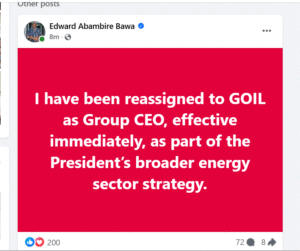Why scrapping Ghana’s $1m retail rule could unlock growth

Lydia Quist of IMANI has argued that Ghana’s retail sector needs a shift from protectionism to openness, following President Mahama’s announcement at the Japan–Africa Summit to scrap the $1 million minimum capital requirement for foreign trading companies.
Her analysis, published in IMANI’s Criticality Analysis of Governance and Economic Issues (August 17–23, 2025), points out that the rule under the GIPC Act was meant to protect local traders but has instead discouraged smaller foreign investors and stifled innovation.
“The $1 million threshold has been a blunt instrument, a deterrent that blocked investment without meaningfully safeguarding local traders,” she noted.
The Ghana Union of Traders Association (GUTA) has opposed the proposal, insisting that the retail sector must remain the preserve of Ghanaians.
While GUTA frames its stance as protecting livelihoods in the informal market, Quist argues that this protectionist instinct is increasingly at odds with the evolution of modern retail.
She highlights how Ghana’s growing middle class and tech-savvy youth are reshaping consumer behavior.
Shopping malls and organized markets are expanding, while e-commerce is booming. Globally, online shopping accounted for 20.1% of all retail sales in 2024 — a milestone that underscores a permanent shift in how consumers buy goods.
According to Quist, Ghana risks falling behind if it clings to restrictive policies.
“Protection may shield a few today, but openness builds prosperity tomorrow,” she stressed.
More competition, she explained, would bring lower prices, wider consumer choice, and innovation, ultimately strengthening the economy.
She, however, emphasized the importance of proper regulation.
Scrapping the $1m rule should not mean a free-for-all; oversight of foreign firms and online businesses remains essential to ensure compliance and consumer protection.
In conclusion, Quist warned that while GUTA’s position may appear to safeguard traders in the short term, it undermines long-term competitiveness and Ghana’s attractiveness to investors.
Mahama’s proposed reform, she said, could serve as a catalyst for a more dynamic, globally aligned retail sector.
The post, originally authored by Lydia Quist, was reshared on Facebook by IMANI President Franklin Cudjoe.





